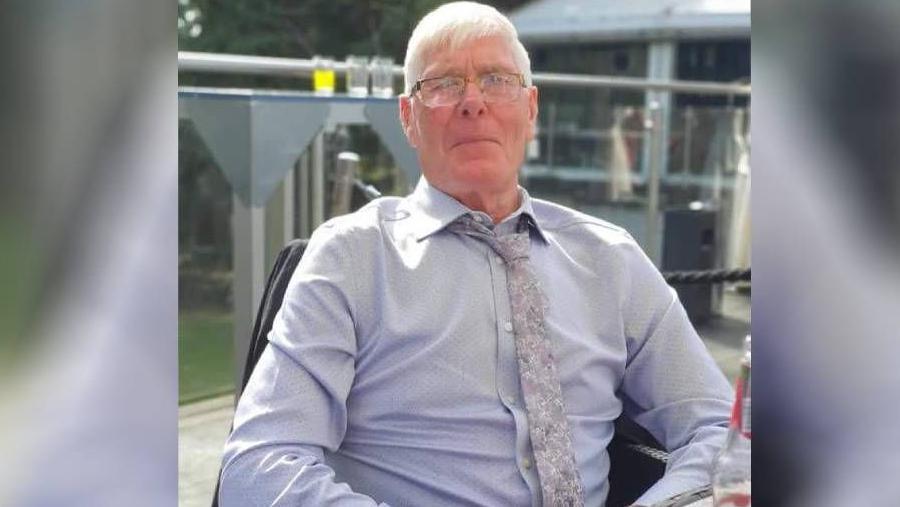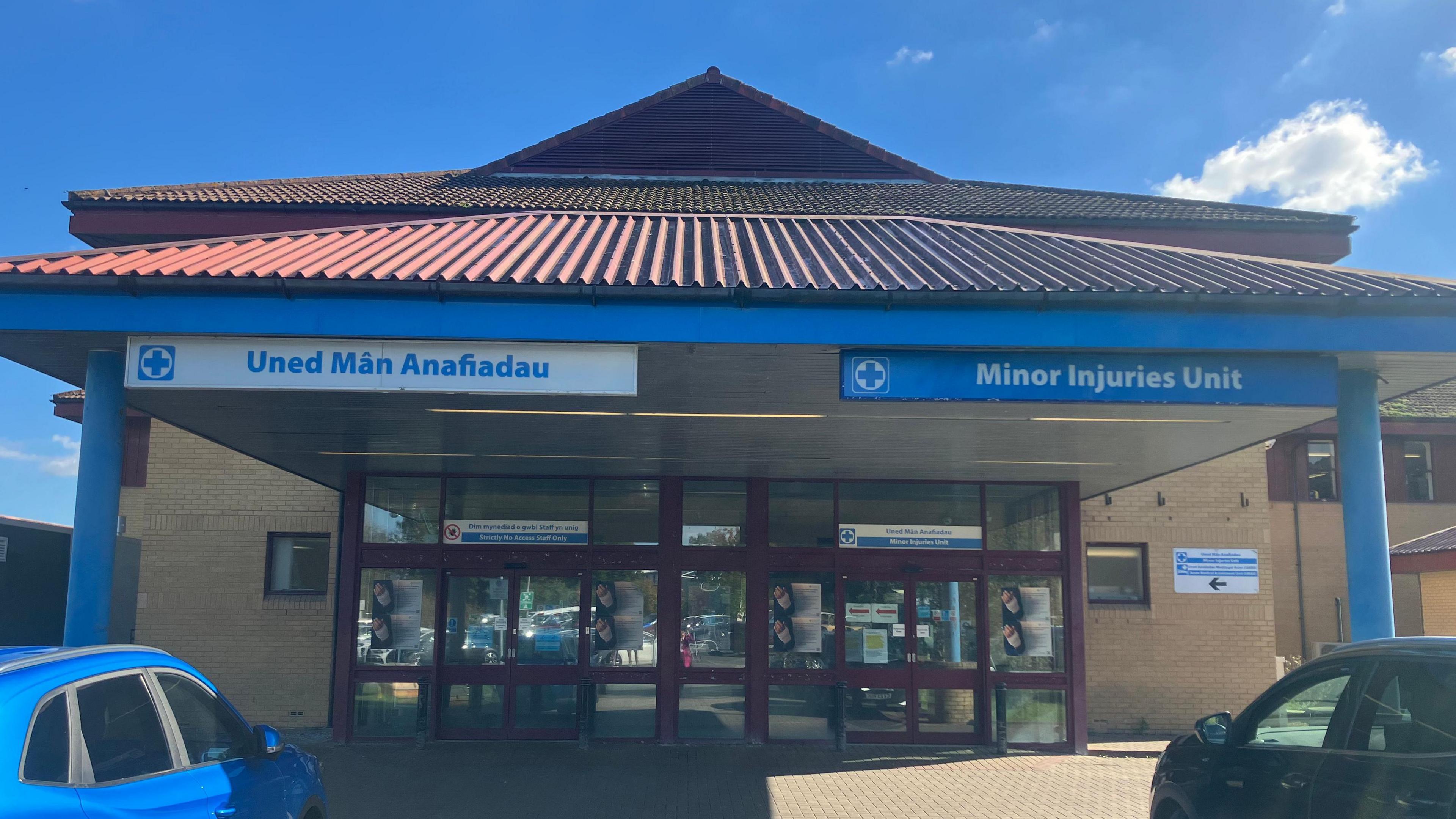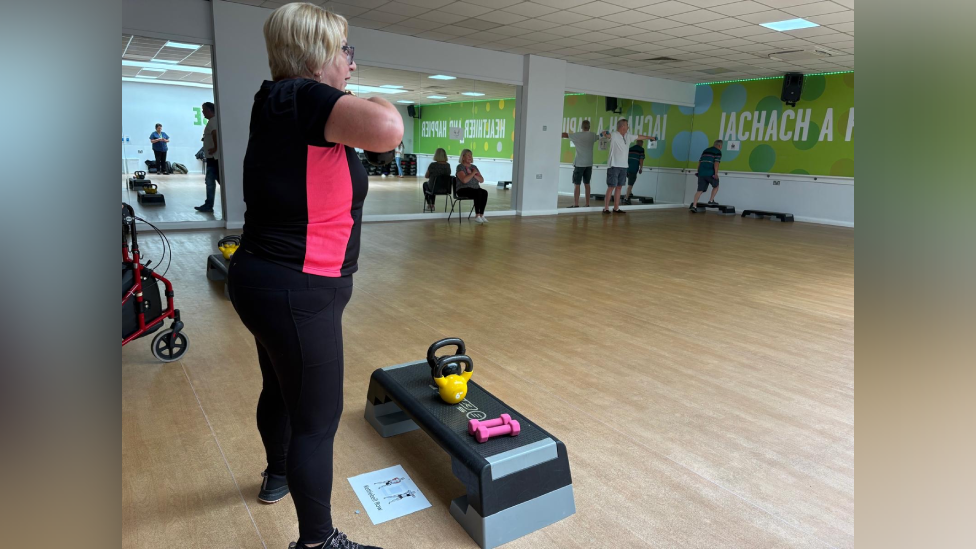Man died after 'unnecessarily long' surgery, inquest hears

Mr Jones' son says he "wasn't given a chance"
- Published
A 76-year-old man who died after major surgery may have had a better chance of recovery if there had been "fuller" pre-operative investigations, an inquest has heard.
Edmund Jones, 76, from Rhyl, died six days after surgery on an abdominal aortic aneurysm at Ysbyty Glan Clwyd, in Rhyl, on 22 November 2020.
The inquest at Ruthin was told the procedure was "unnecessarily long" and carried out without best practice, with concerns about a lack of pre and post-operative care also raised.
The case is one of four referred to the senior coroner following concerns about vascular services at the hospital, where services were centralised by the Betsi Cadwaladr University Health Board in 2019.
A Royal College of Surgeons report in February 2023 raised urgent recommendations "to address patient safety risks".
'Get flu vaccination' says woman left bedbound
- Published1 October
Emergency care in north Wales 'in crisis'
- Published30 September
The inquest heard that Mr Jones was a previously fit and healthy man who had been diagnosed in October 2020 with a large abdominal aortic aneurysm which needed urgent repair, and underwent surgery about four weeks later on 17 November.
According to the NHS, an abdominal aortic aneurysm, external is a swelling in the aorta, the artery that carries blood from the heart to the abdomen.
He did not recovery from the surgery and died on 22 November
The retired engineer from Rhyl had also been diagnosed with atrial fibrillation, an irregular heart beat, three weeks before the operation.
The cause of his death was recorded as systemic inflammatory response syndrome following the surgery.
In a statement, Peter Holt, an expert in vascular surgery who was commissioned to review the overall service at Ysbyty Glan Clwyd and individual cases, said there had been a sense of "rush" to surgery in Mr Jones' case.
He added that the procedure was "unnecessarily long", and best practice meant it should have involved two surgeons and not a single surgeon as was the case.
Mr Holt said the pre-operative notes were too brief and there was no evidence that the risks and alternatives were discussed, and further investigations should have taken place.
He added that in regards to Mr Jones' post-operative care, the cardiology team should have become involved in his care earlier.
'Left to die'
Laszlo Papp, a consultant vascular surgeon at Ysbyty Glan Clwyd, told the hearing that surgery had "not been rushed" and there had been a four-week period between diagnosis and repair.
He said the operation carried a mortality risk of 4-5%, which was higher in Mr Jones' case, at about 10% due to his atrial fibrillation.
He added the risk of dying from a ruptured aneurysm was higher still, at 25-30%.
The inquest also heard from Dr Jo Flannery, who has been the vascular network manager for the health board since October 2023.
She said that following the external investigations into the service, a "great deal of work was undertaken" on a detailed improvement plan.
She confirmed that all abdominal aortic aneurysm surgeries continued to be outsourced to the Royal Stoke Hospital in Staffordshire, a measure which was undertaken in November last year while the health board undertakes a review.
Giving a narrative conclusion, John Gittins, senior coroner for north Wales east and central, said Mr Jones' surgery had been "technically successful" but that he had made a poor post-operative recovery in intensive care before passing away.
He said it was "probable that a fuller set of pre-operative investigations would have optimised Mr Jones' prospects of recovery" as it may have "revealed previously undiagnosed cardiac impairment, which could have led to a different range of treatment options".
Mr Jones' son, Andrew Jones, said his father's death was a "total shock" and that he was a fit man who had been enjoying his retirement.
He said the family had thought he would be in hospital for "just for a couple of days".
"He was just left to die," he said in his statement, "He wasn't given the chance."
Related topics
- Published27 September

- Published25 September

- Published16 September
